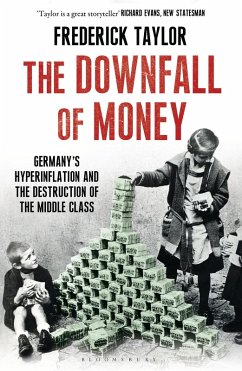'Excellent ... This is a dramatic story, well told' Wall Street Journal
Many theorists believed a hundred years ago, just as they did at the beginning of our twenty-first century, that the world had reached a state of economic perfection, a never before seen condition of beneficial human interdependence that would lead to universal growth and prosperity. And yet the early years of the Weimar Republic in Germany witnessed the most complete and terrifying unravelling of a major country's financial system to have occurred in modern times.
The story of the Weimar Republic's financial crisis has a clear resonance in the second decade of the twenty-first century, when the world is anxious once more about what money is, what it means and how we can judge if its value is true. The Downfall of Money will tell anew the dramatic story of the hyperinflation that saw the once-solid German mark, worth 4.2 to the dollar in 1914, trading at over four trillion by the autumn of 1923. It is a trajectory of events uncomfortably relevant for today's uncertain world.
The Downfall of Money will reveal the real causes of the crisis, what this collapse meant to ordinary people, and also trace its connection to Germany's subsequent catastrophic political history. By drawing on a wide range of sources and making sense for the general reader of the vast amount of specialist research that has become available in recent decades, it will provide a timely, fresh and surprising look at this chilling period in history.
Dieser Download kann aus rechtlichen Gründen nur mit Rechnungsadresse in A, B, BG, CY, CZ, D, DK, EW, E, FIN, F, GR, HR, H, IRL, I, LT, L, LR, M, NL, PL, P, R, S, SLO, SK ausgeliefert werden.









